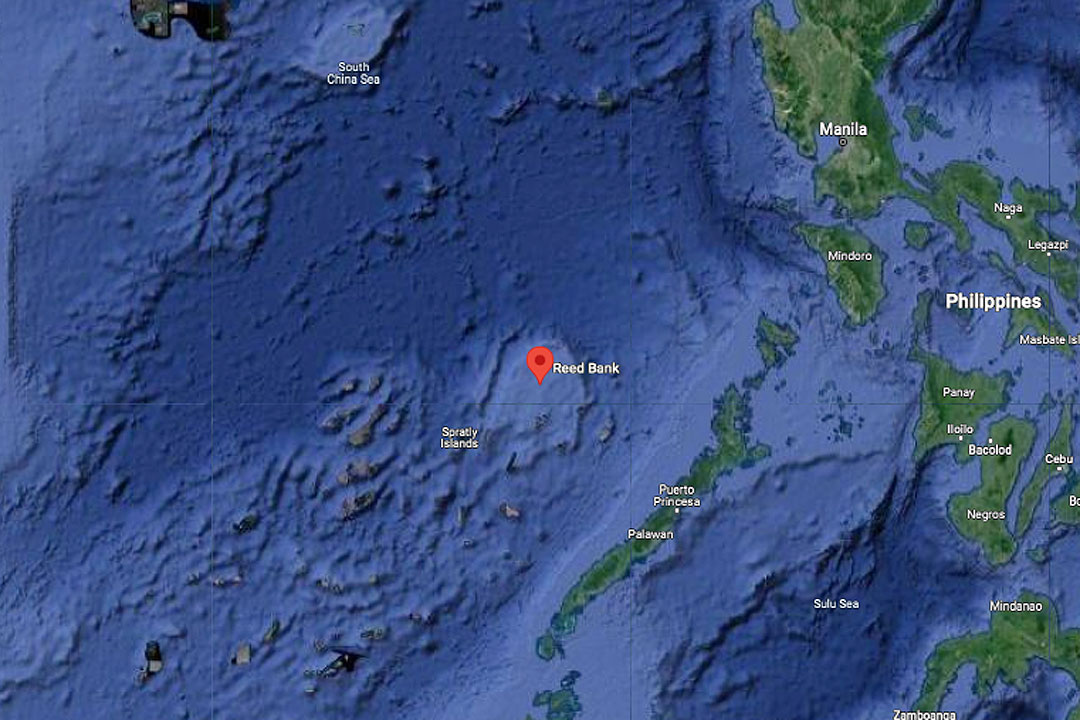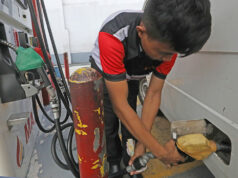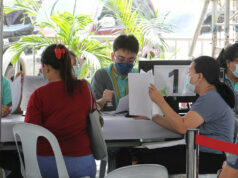Philippines told to seek partner for Reed Bank

THE PHILIPPINES should seek the help of foreign companies when it decides to explore Reed Bank in the South China Sea for oil and gas, a Philippine senator said on Tuesday.
“This is a very technical, highly risky, a type of business that [involves] a lot of capital,” Senator Sherwin T. Gatchalian told EuroTV Philippines, based on an e-mailed transcript sent to reporters. “No business in the Philippines will have that capability, especially on the technical side.”
Energy Secretary Raphael P.M. Lotilla told a House Representatives budget hearing on Aug. 16.
President Ferdinand R. Marcos, Jr. Had given the go-signal for the government to conduct drilling and exploration activities at Reed Bank and other areas of the South China Sea.
Former Supreme Court Justice Antonio T. Carpio earlier urged the government to explore Reed Bank amid rising energy costs and the drying up of the Malampaya natural gas field.
Tensions between the Philippines and China have worsened after the Chinese Coast Guard fired water cannons to block Manila’s resupply mission at Second Thomas Shoal on Aug. 5.
Second Thomas Shoal is about 200 kilometers from the Philippine island of Palawan and more than 1,000 kilometers from China’s nearest major landmass, Hainan Island.
Mr. Carpio said the move was China signaling to Manila not to send survey ships to Reed Bank.
“I think that is connected,” the former magistrate said. “It’s very clear that they are flexing their muscle to intimidate us not to send our survey and drilling ships to Reed Bank.”
The late President Benigno S.C. Aquino III ordered a halt on exploration activities at Reed Bank in 2012 amid rising tensions with China.
His successor, Rodrigo R. Duterte, lifted the suspension in 2020, resuming drilling activities in the disputed water, including Reed Bank, and advancing a 2018 deal with China for joint oil and gas exploration.
Reed Bank may hold as many as 5.4 billion barrels of oil and 55.1 trillion cubic feet of natural gas, according to a 2013 report from the US Energy Information Administration.
Last week, Senator Ana Theresia N. Hontiveros-Baraquel filed a resolution seeking an inquiry, in aid of legislation, into the Philippine Coast Guard’s capacity to safeguard outposts in the South China Sea through additional marine radar stations and automatic tracking systems for increased surveillance.
She said the coast guard should get as much as P600 million in intelligence funds.
‘GLOBAL STABILITY’
Meanwhile, British Foreign Secretary James Cleverly arrived in the Philippines on Tuesday for an official visit aimed at boosting the United Kingdom’s security and trade ties with the Philippines.
He met with his Philippine counterpart Enrique A. Manalo to discuss the two countries’ “various positions on things” and the UK’s growing focus on Southeast Asia.
He also paid a courtesy call to President Ferdinand R. Marcos, Jr., who has pursued closer ties with western countries amid China’s increasing assertiveness in the South China Sea.
“It is not traditional for us to look to Europe to seek alliances and partnerships when it comes to security and defense,” Mr. Marcos told Mr. Cleverly, who is set to become the first British Foreign minister to visit China in five years.
“But that seems to be the evolution, the geopolitics these days. It is a welcome evolution in my view,” the Philippine leader said. “And again, your visit here, I think, is a clear indication of that intent.
The UK and other European countries were among the countries that immediately issued statements of concern over the Aug. 5 water cannon incident.
The British official was also set to meet with the Philippine Coast Guard to discuss cooperation on maritime security, counterterrorism and environmental protection, his office said in a website post.
He was set to “reiterate the necessity of upholding the United Nations Convention on the Law of the Sea (UNCLOS) in the interests of global stability and the protection of maritime trade routes,” it said.
It noted that about 60% of global shipping passes through the Indo-Pacific region, “directly benefiting households and businesses in the UK and worldwide.”
Mr. Cleverly said the UK is “very focused” on the Philippines’ response to climate change and renewable energy generation.
“That’s an area where we can work very, very closely together,” he told Mr. Marcos. — John Victor D. Ordoñez and Kyle Aristophere T. Atienza



